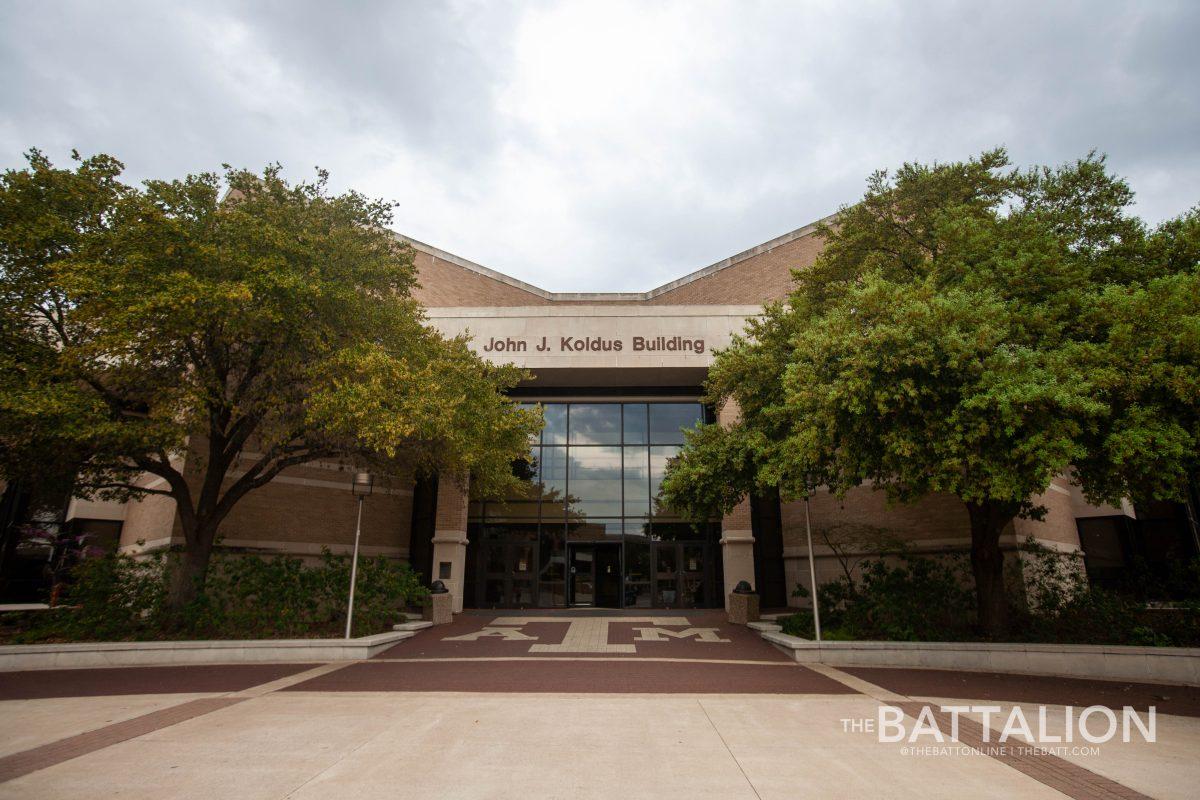In what several student senators expected to be the most contentious bill of the night, no debate was needed to pass an emergency resolution to introduce a procedure to fill Texas A&M Student Senate vacancies.
Currently, there are 12 vacancies in the Senate and the means to fill these vacancies has been a topic discussed throughout the semester. In the last meeting, a special committee was formed to write legislation concerning how to fill these seats. The committee presented their plan as an emergency bill, which can pass in a single meeting. Unlike a normal bill, it is only required to be read once to pass.
The main emphasis of this bill was the idea of caucus individualism. The authors, including meteorology sophomore Joshua Benson, said they wanted the process of filling vacancies to reflect the election procedure already in place for student senators, where only students in each caucus can vote for their respective representatives.
“This idea comes from the fact that no senator from another caucus should have any say in who’s selected by another caucus and who becomes a Student Senator [for that caucus],” Benson said. “Those who are elected by their constituents are entrusted to make decisions on their behalf.”
Some senators voiced their concerns about the possibility of nepotism and favoritism in the senators selected, especially in the smaller caucuses. Computer science senior Samuel Jefferis, chair of the Academic Affairs Committee, brought up this concern to the authors of the bill.
“This question is directed to Senator Benson,” Jefferis said. “Is it not true that you would be the sole vote to fill the vacancy in your caucus?”
Benson affirmed this statement, but added there were protections in place to avoid any bias.
“I would also be under the scrutiny of the rules and regulations chair [Meghan Hein] in order to make sure that the process is unbiased and following this process,” Benson said.
However, a couple of senators voiced their concern that these protections — which included having multiple members of the caucus in each interview, having interview questions approved by the Rules and Regulations Committee and having each interviewer take notes that any senator in the caucus could review — did not go far enough and could lead to favoritism in the selection of new senators. Biomedical engineering sophomore Angelina Baltazar introduced a wide-sweeping amendment which changed these protections.
The major change in the amendment was to make all of the interviews recorded, which would be available to every senator. This amendment came after a concern was raised by computer engineering junior Fawaz Syed, chair of the Student Services Committee.
“I’ve been doing a lot of research into other student governments, and I haven’t been able to find one student government that doesn’t have a vacancy filling process without confirmation by the senate,” Syed said.
Despite these concerns, the resolution passed unanimously and the amendment and the process will go into effect soon, with an email being sent out to all students to get applicants.
In addition to this, a resolution voicing the opinions of the Student Senate about the MGT consulting report was passed. This report, commissioned by university President M. Katherine Banks, outlined many areas in the administration of the school that could be improved, including a merger between the College of Liberal Arts, College of Science and College of Geoscience.
Jefferis and Benson authored a resolution which commented on many of these recommendations. This resolution supported some of the recommendations — including a focus on more campus gardens, a performing arts center and a museum, as well as having the Higher Education Center and McAllen directly report to the provost — but disagreed with other recommendations.
“The Texas A&M Student Senate vigorously and unwaveringly opposes further exploration of all efforts to align student organization management practices to ensure transparency and accountability with any attempts at a staff-led approach,” the resolution reads.
An amendment was made in the meeting to specifically address Fish Camp, which the MGT report highlighted in its assessment of Student Affairs.
“Fish Camp is an example of [A&M’s history and culture negatively impacting student body diversity] — there is a lack of control over the content of the camp. The challenges of polarized politics have the potential to threaten Core Values,” the report reads.
The Senate amendment said the body opposes any plans to make Fish Camp a faculty-run program. However, the MGT report did recognize a need for student-faculty balance in Fish Camp’s operations.
“It is important to balance student autonomy with institutional oversight, such that [A&M’s] values and traditions remain central, when helping to shape programmatic elements,” the MGT report reads.
Regardless, the Senate amendment voiced the body’s opposition to any plans for university oversight on the organization.
“The Texas A&M Student Senate condemns all attempts of university administration to provide institutional staff oversight to any student organizations such as Fish Camp [in accord with] the First Amendment protection of self governance and independence from Texas A&M University’s administration and staff,” the amended text reads.
With this amendment, the resolution passed with a unanimous vote.









